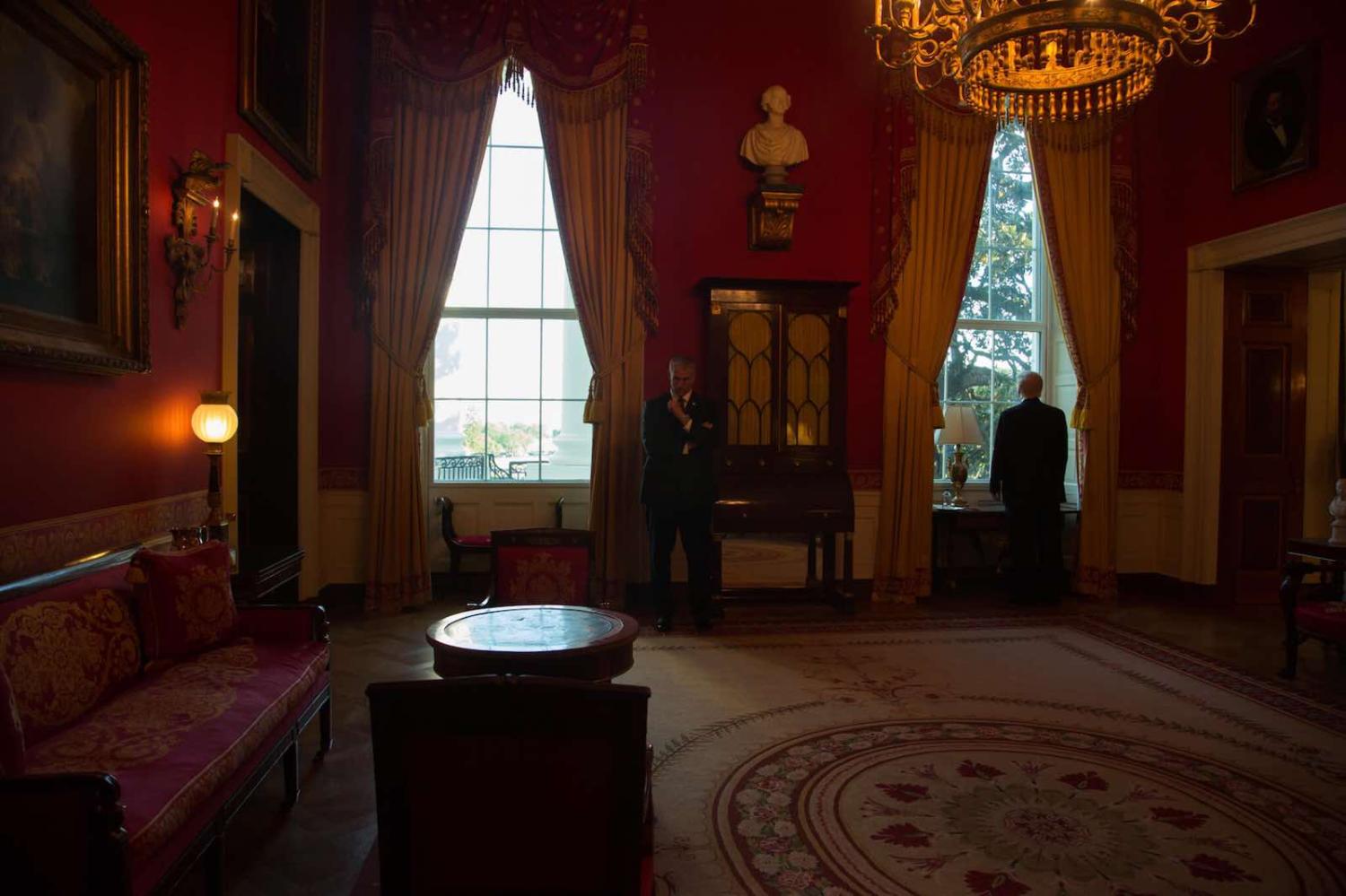Donald Trump doesn’t pretend to care about things he’s not interested in.
When Trump’s Secretary of Health and Human Services brought him warnings about the spread of the novel coronavirus Covid-19 in China in early 2020, the President readily agreed to institute travel bans, and then proceeded to minimise the crisis, treating the pandemic as a foreign threat best addressed by closing borders.
Trump opined about the small number of the cases in the US without acknowledging how few people had been tested. He failed to react to rising levels of concern across the country as events were cancelled, hundreds of schools were closed, Washington State announced a state of emergency, and a large cluster of cases was discovered in a suburb just outside of New York City.
However, on Monday morning this week the US stock market dropped 7% within the first five minutes of trading, and those losses jolted Trump into showing an interest in governing through this crisis.
At this moment, Trump’s chances of being re-elected are seriously threatened by the prospect of a severe economic downturn and public perceptions that he has mismanaged this pandemic.
On Tuesday Trump went to Capitol Hill to discuss legislative approaches to protecting the American economy with Republican lawmakers. They discussed payroll tax relief, help for hourly wage workers, small business loans, and affordable testing and treatment options. Significant disagreements remain between Trump and the Congress, and between Republican and Democratic members of Congress, but a government-wide commitment to tackling the crisis was on display on Tuesday.
Monday’s stock market losses reflected a set of interrelated concerns about the Trump administration’s non-response to the crisis, the global economic impact of Covid-19, and Saudi Arabia’s decision to flood the oil market. But talk of legislative action appeared to temporarily restore confidence in the market. Wall Street recovered half of its losses from Monday on Tuesday.
On the day before the markets reflected panic about the economic threat posed by coronavirus, New York Times political reporter Peter Baker asked Trump whether he regretted eliminating the global health unit of the National Security Council (NSC) – set up by the Obama administration to deal with novel infectious disease crises like COVID-19. Trump reflected:
I just think this is something Peter that you can never really think is going to happen. I’ve heard all about this could be a big deal, you know, before it happened … But who would have thought, how long ago was it – six, seven, eight weeks ago – who would have thought we’d even be having this subject? We were going to hit 30,000 in the Dow like it was clockwork, right?
Members of the disbanded NSC global health unit rightly take issue with Trump’s characterisation of Covid-19 as an event that could not be anticipated. The likelihood that future administrations would confront a novel infectious disease crisis led the Obama administration to not only create the global health unit but to include a pandemic exercise in the official presidential transition process.
But Trump’s comments to Peter Baker also reflected the extent to which his political fortunes had shifted dramatically in recent days. Just six weeks ago, it appeared that Trump’s unorthodox approach to the presidency had won over the domestic and international audiences he cared about.
On the international front, Trump received a warm welcome at the World Economic Forum in January. The relative strength of the US economy appeared to minimise concerns within the international business community about Trump’s protectionist trade policies and challenges to democratic norms. Fareed Zakaria, the academic/journalist, who is a regular at the World Economic Forum, noted that the mood in Davos this year was that Trump would get re-elected, and that “the issue of the American economy outperforming everyone else has overridden concerns that American democracy may be underperforming in some sense”.
On the domestic front six weeks ago, Trump had beaten back efforts to impeach him. And without encountering much resistance from his party, was freely taking revenge on those who had opposed him over the course of the Ukraine and the Mueller investigations. Perhaps most importantly, it was seemed likely six weeks ago that enough voters were willing to give Trump a second term, given the performance of their retirement investments on the stock market.
Six weeks ago, the Democratic Party was attempting to pick up the pieces from the Iowa caucuses, and the Republican Party was energized by the prospect of running a general election campaign against a Democratic Socialist.
Within the past two weeks, however, another politician, the moderate and well-liked former Vice President Joe Biden, experienced a meaningful reversal of fortunes. Biden emerged as the frontrunner for the Democratic nomination, and his message about being a safe harbour – decent, competent, and stable – in the midst of a storm contrasts sharply with perceptions of Trump.
On Wednesday (US time), the World Health Organization declared that Covid-19 was a global pandemic, and Wall Street tumbled into a bear market, with the Dow closing at a loss of nearly 6%. At this moment, Trump’s chances of being re-elected are seriously threatened by the prospect of a severe economic downturn and public perceptions that he has mismanaged this pandemic.

